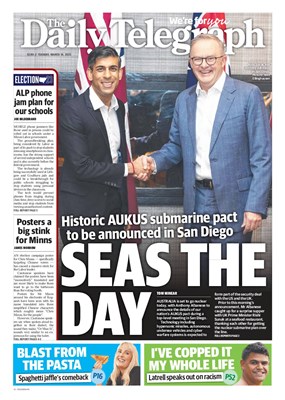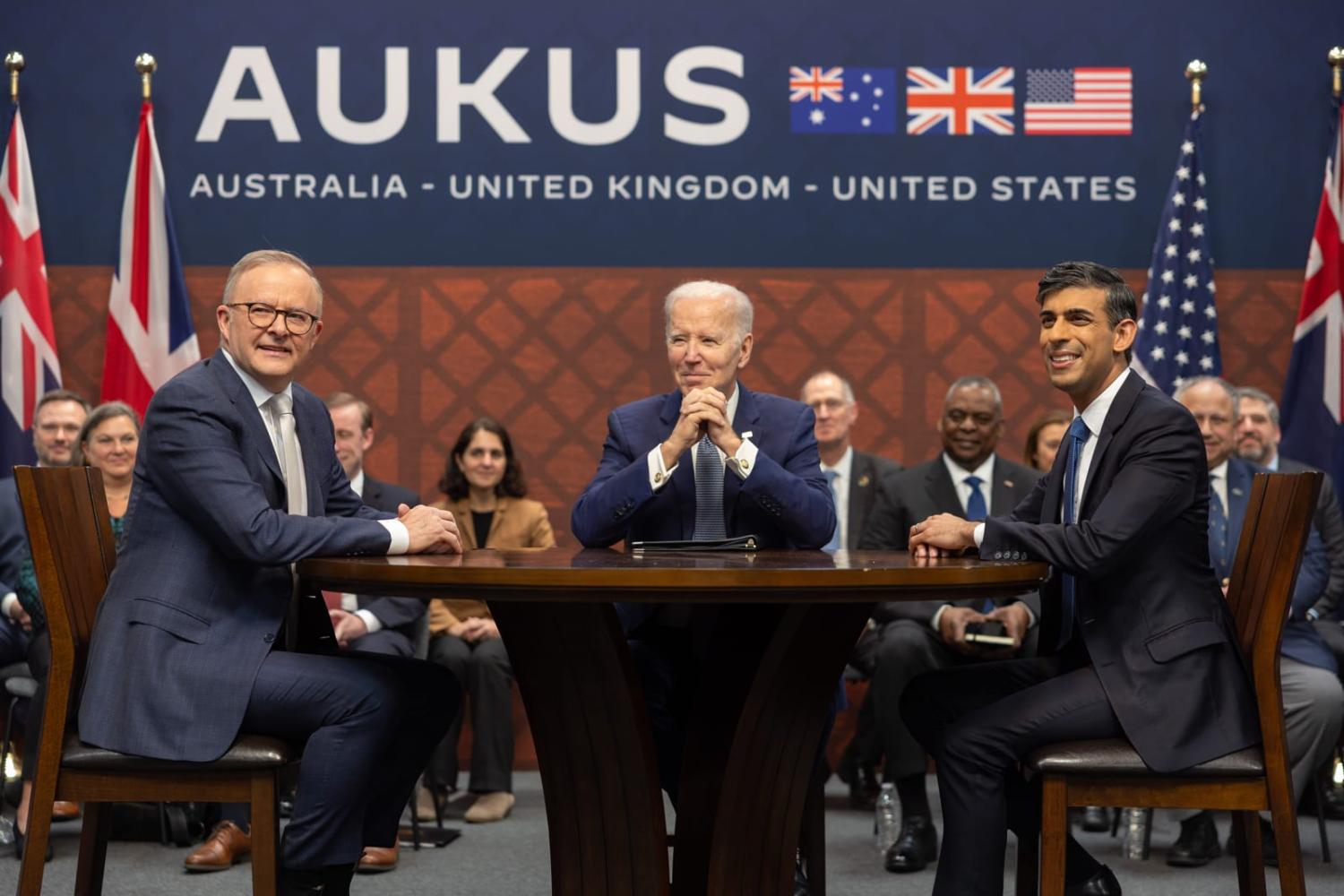First published 14 March 230PM
“Seas the Day” was a win for the pun-happy headline writers at The Daily Telegraph in Australia. And as news about the AUKUS nuclear-powered submarine filters through this morning, people are understandably reaching for ways to explain what will be – by far – Australia’s most complex and terrifyingly expensive military project ($368 billion over 30 years, far more than the $200 billion bandied about in the days prior).

Yet for all the debate this announcement has generated at home, as Lowy Institute Executive Director Michael Fullilove pointed out to The Washington Post, it’s in China where reaction is likely to be sharpest.
AUKUS is coming over the horizon, and whatever comes is going to be unwelcome in Beijing … That will impose some limitations on the extent of the Australia–China rapprochement.
Southeast Asian nations will also be poring over the detail, as Lowy Institute’s Susannah Patton explained to ABC Radio. Indonesia and Malaysia were none too pleased when AUKUS was first revealed in 2021, and as Patton put it earlier for the Australian Financial Review, “[b]oth worried about the potential for AUKUS to contribute to a regional “arms race”, and about “nuclear proliferation risks”.
Lowy Institute’s analysts have covered a range of risks and rewards related to AUKUS. The technical challenges are daunting, as Thawley Scholar Justin Burke explained to Reuters, even with the talk of obtaining pre-built boats from the United States before embarking on a new Australian–British vessel with American technology:
There are always considerable challenges in designing submarines from scratch, especially if you are combining technology from different nations and potentially manufacturing across multiple locations. Acquiring several submarines up front would mitigate those risks considerably.
And then there is the question of national character, as Financial Times columnist Gideon Rachman explored when quoting the Lowy Institute’s Sam Roggeveen: Australia is “buying a weapon expressly designed to hem China’s navy in along its coastline and strike targets deep inside Chinese territory … Australians should be asking themselves: is this really who we are?”
Roggeveen argued to Network Ten’s The Project that nuclear-powered subs are the Great White Sharks of the navy, the top of the food chain, and are beyond what Australia needs given Beijing is closer to London than Sydney (see from about 2:20mins).
Leaked documents have shown that Australia is about to buy up to five nuclear-powered submarines as part of the controversial AUKUS partnership, but do we need them, and are they worth the cash? @SamRoggeveen from the Lowy Institute joins us.#TheProjectTV pic.twitter.com/98y6iPZd0B
— The Project (@theprojecttv) March 10, 2023
Fullilove sees a broader contribution, of engaging an enduring US presence in the region. “You shouldn’t underestimate Australian agency here,” he told The Wall Street Journal. Australia’s decision “has to encourage the US to feel that its allies are reliable in the region, and therefore it should stick around”.

